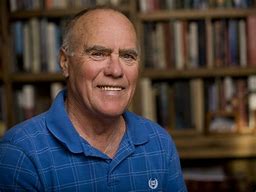Roger Barbee – Former President Donald Trump’s allies in Congress are planning to use congressional investigations to put the spotlight on one of his most prominent critics — the chairman of the Joint Chiefs of Staff, Gen. Mark Milley — should Republicans take control of the House in November’s midterms…[and] causes me to remember another report of a Congressional “grilling.”
“Former President Donald Trump’s allies in Congress are planning to use congressional
investigations to put the spotlight on one of his most prominent critics — the chairman of the Joint Chiefs of Staff, Gen. Mark Milley — should Republicans take control of the House in November’s midterms, say six people familiar with the plans.”
The above paragraph from NBC news on September 14, 2022 causes me to remember
another report of a Congressional “grilling” as told by Wallace Stegner in his book Beyond the Hundredth Meridian (John Wesley Powell and the Second Opening of the West).
Major Powell had been working on an Irrigation Survey to help in the settlement of
western land and better ensure success for its agricultural needs in the arid region beyond the 100 th Meridian. In his appearances before the House Appropriations Committee in June and July of 1890 he tried to explain to the Senators how his topographical survey would enhance irrigation in the arid west. He was “grilled” by members of the committee, but Senators Moody of South Dakota and Stewart of Nevada were especially hostile towards Major Powell and his charts and proofs. In the end, the committee shot down Powell’s maps that helped define the best ways of irrigation and relied on “natural conditions and natural enterprise” to manage water in
such an arid region. In the June meeting of the committee, Senator Moody said: “Of course I have got a great respect for scientifically educated gentlemen, and I am always very much interested in their researches and all that, but you can not satisfy an ordinary man by any theoretical scheme or by any science….One man can see in the ground no farther than another, unless there is a hole in it.”
Roger Barbee

